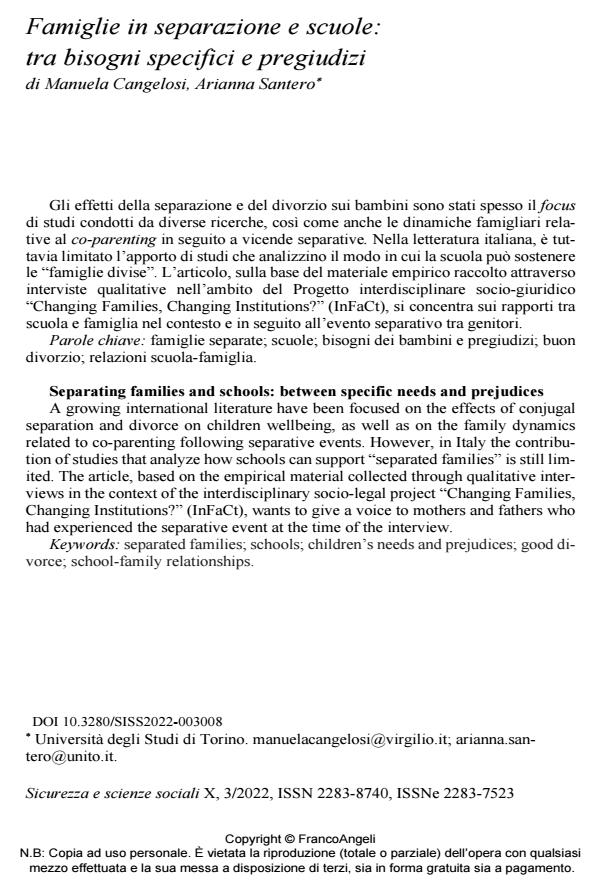Separating families and schools: between specific needs and prejudices
Journal title SICUREZZA E SCIENZE SOCIALI
Author/s Manuela Cangelosi, Arianna Santero
Publishing Year 2022 Issue 2022/3
Language Italian Pages 21 P. 115-135 File size 260 KB
DOI 10.3280/SISS2022-003008
DOI is like a bar code for intellectual property: to have more infomation
click here
Below, you can see the article first page
If you want to buy this article in PDF format, you can do it, following the instructions to buy download credits

FrancoAngeli is member of Publishers International Linking Association, Inc (PILA), a not-for-profit association which run the CrossRef service enabling links to and from online scholarly content.
A growing international literature have been focused on the effects of conjugal separation and divorce on children wellbeing, as well as on the family dynamics related to co-parenting following separative events. However, in Italy the contribution of studies that analyze how schools can support "separated families" is still limited. The article, based on the empirical material collected through qualitative interviews in the context of the interdisciplinary socio-legal project "Changing Families, Changing Institutions?" (InFaCt), wants to give a voice to mothers and fathers who had experienced the separative event at the time of the interview.
Keywords: separated families; schools; children’s needs and prejudices; good divorce; school-family relationships.
Manuela Cangelosi, Arianna Santero, Famiglie in separazione e scuole: tra bisogni specifici e pregiudizi in "SICUREZZA E SCIENZE SOCIALI" 3/2022, pp 115-135, DOI: 10.3280/SISS2022-003008